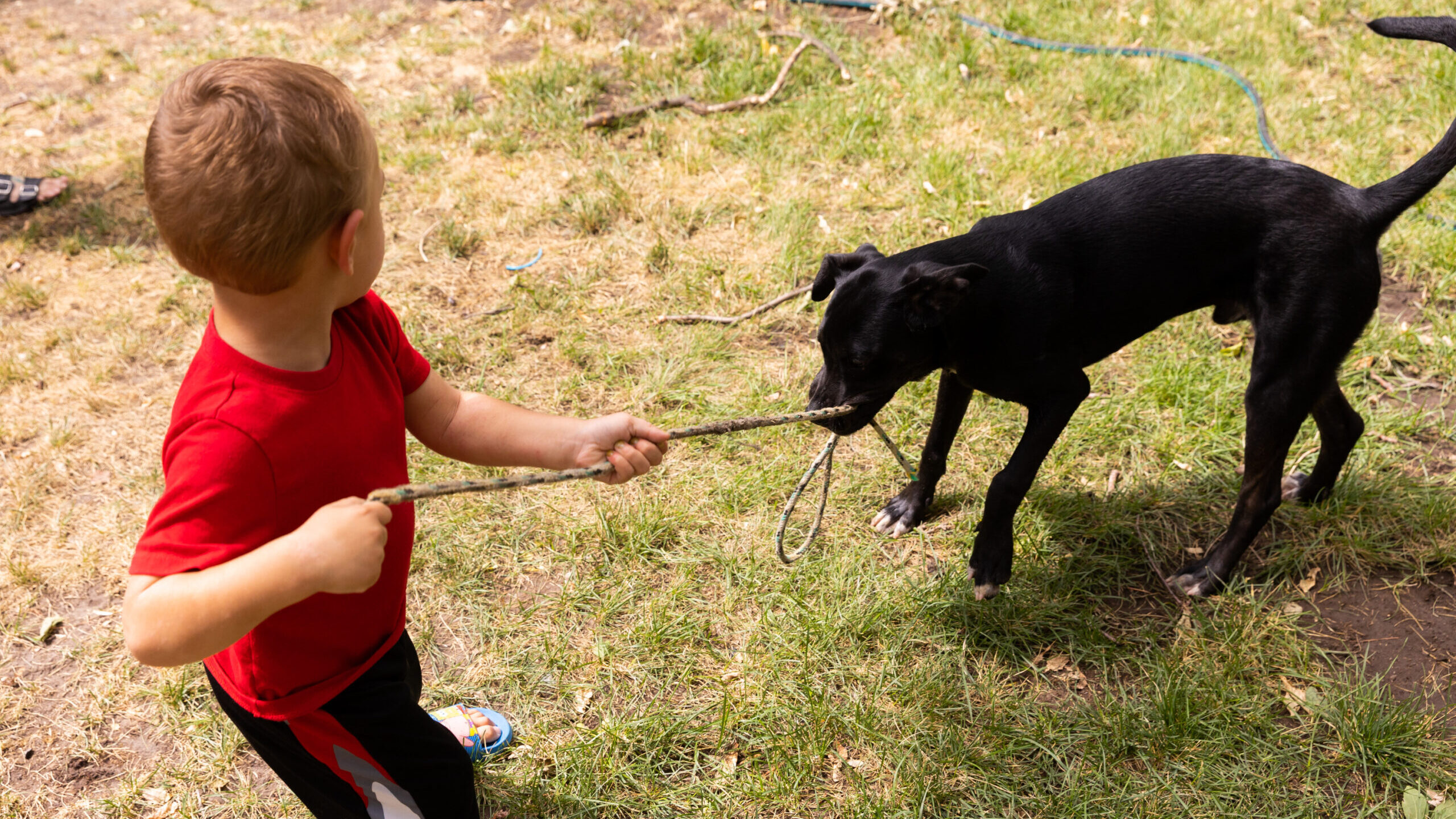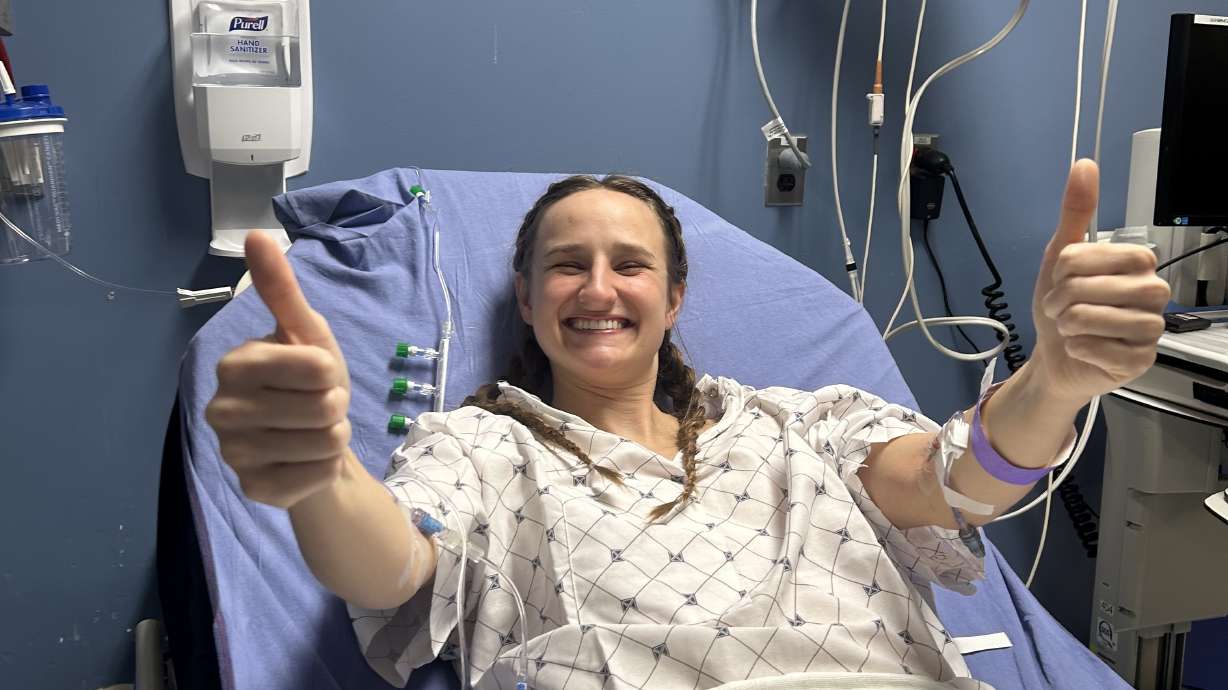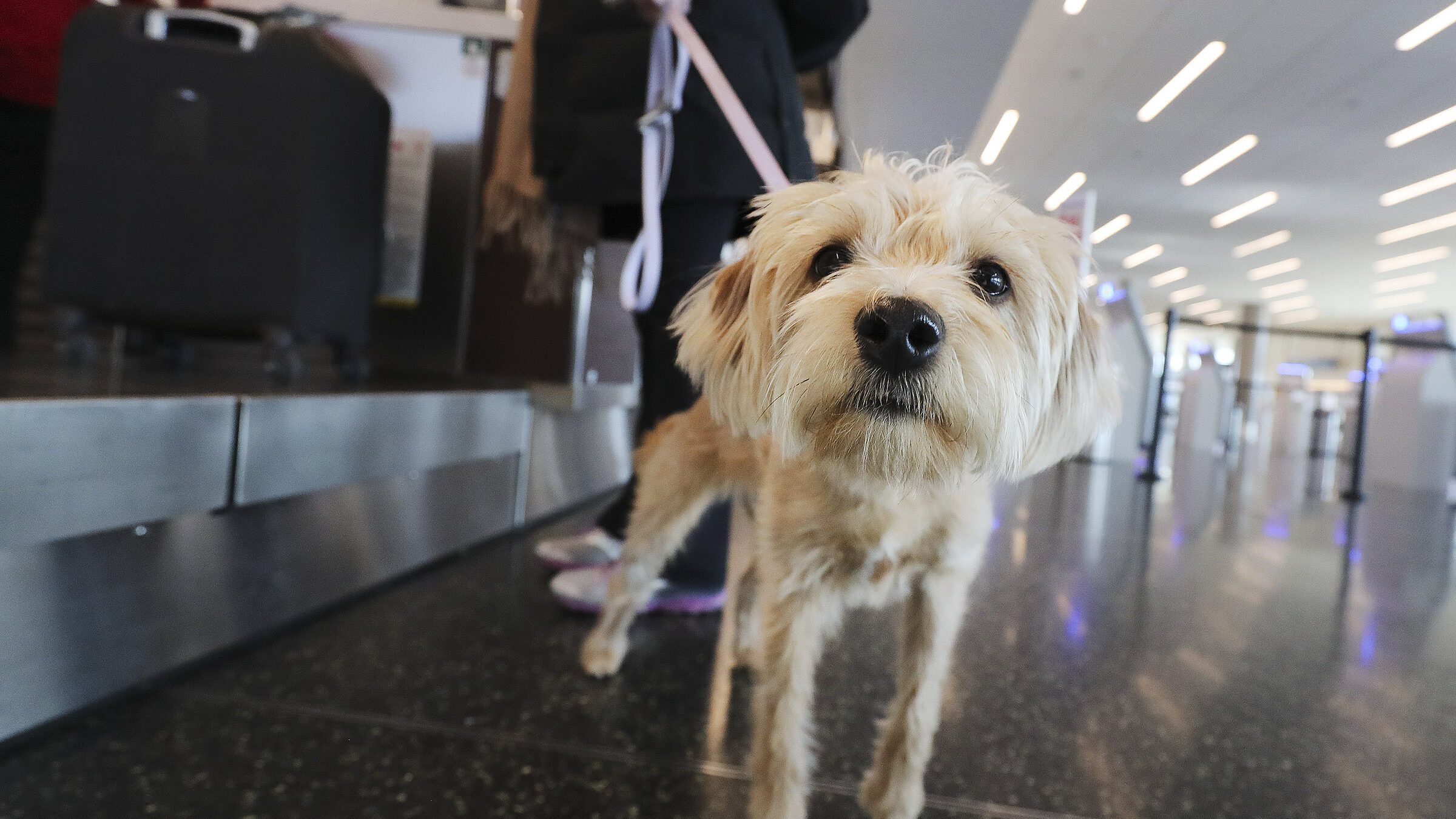The spring season leads to increased cases of canine parvovirus
May 9, 2024, 6:00 PM

FILE: A two-year-old, plays with dogs outside their home in Ogden on Sunday, Aug. 6, 2023. (Megan Nielsen, Deseret News )
(Megan Nielsen, Deseret News )
SALT LAKE CITY — Utah veterinarians say they’re seeing more episodes of canine parvovirus, or parvo, a dangerous virus that affects dogs’ digestive systems.
Spring is “the season” for parvo, said Amanda Vockler with Davis Mobile Veterinary Services. Springtime brings more opportunities for people and pets to get outside, and animal hospitals start seeing a surge.
“Their isolation rooms, everything will just be full and over-flowing,” Vockler said.
Parvo is especially dangerous for young dogs. It has the potential to wreak havoc on their digestive system. The American Veterinary Medical Association warns that parvovirus can be extra dangerous for young dogs because “the natural immunity provided in their mothers’ milk may wear off before the puppies’ own immune systems are mature enough to fight off infection.”
“It attacks their intestines, then it can get really bad,” Fockler said. “It can get into their bone marrow and it can be quite serious.”
The AVMA also warns that in some cases, vaccination against parvovirus may not be effective because “immunity provided by a mother’s milk may interfere with an effective response to vaccination.”
Parvo is spread through dog feces. It can also live in soil, such as in an area where a dog infected by Parvo has been.
Vockler said immunizing a dog against Parvo is the best way to prevent the virus. She said this is a disease that can’t be treated with antibiotics. If they get it, dogs will often have to spend time in an animal hospital to recover.
Another good practice is to avoid other dogs.













